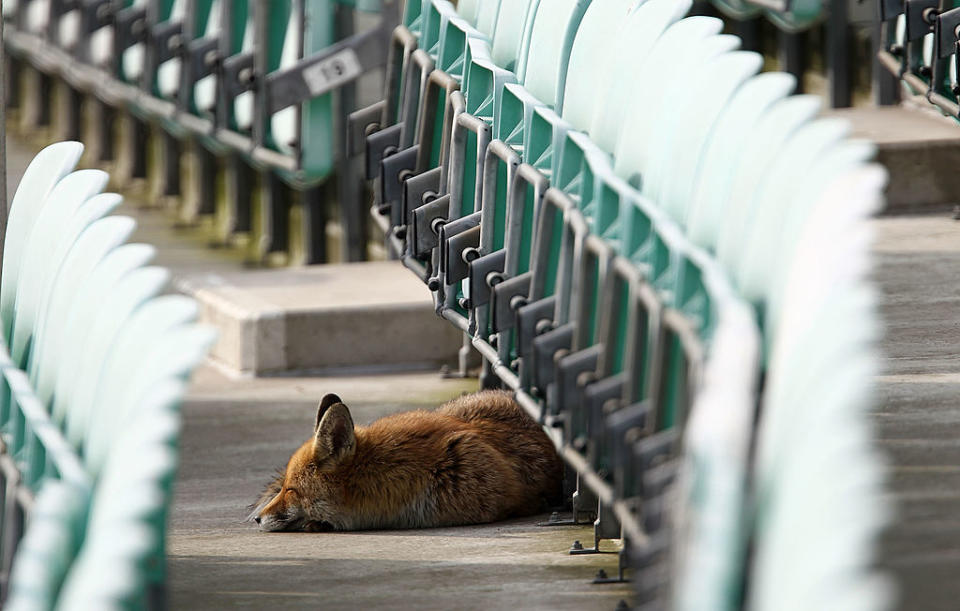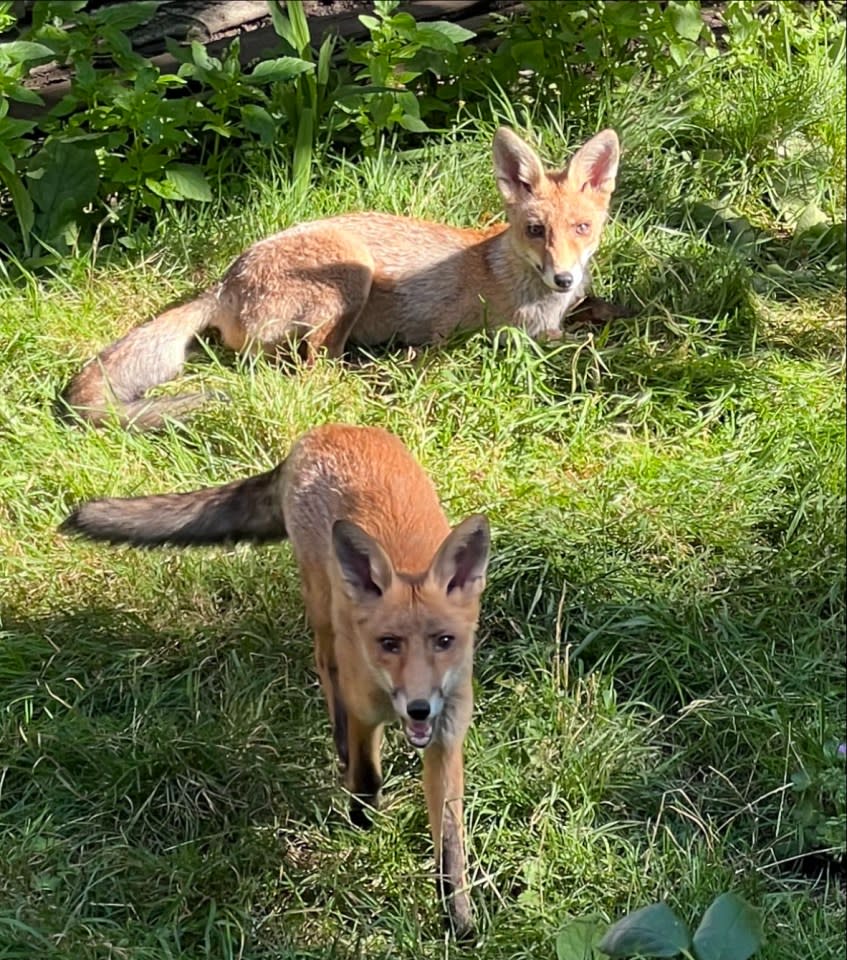The Debate: The urban fox – friend or foe?

Urban foxes prowl the streets in ever-increasing numbers – is that a good thing? Our columnists battle it out before City A.M. delivers the verdict.
Urban fox: friend or foe?

Friend: ‘I can’t help but admire their spirit’
A little under a year ago, stood in my garden surveying the winter damage, I glanced down at the decking to see a tuft of fur and a small, beady eye staring nervously up at me from between a crack. Over the course of a couple of days’ quiet observation, I established that a vixen had excavated under the wooden boards, and was busy raising four cubs there.
A couple of weeks later she disappeared, and the four became two, both anxious and struggling. You are told you shouldn’t intervene, but as someone who once leapt from a moving car to rescue a baby rabbit, it was never a viable option.
In short, both foxes are still around, and while in no way tame or dependent, they have forged with me a working relationship the average office drone can only dream of. They keep their distance when they see me approach, but sometimes give themselves away by skipping.

That said, they are cheeky. They worked out what a cat-flap was early — the current tally of stolen/destroyed items stands at three shoes, nine socks, two laptop chargers, a rucksack, a pair of gardening gloves and, in one adrenaline-inducing episode, a huge tomahawk steak. But I can’t begrudge them.
The life of an urban fox is miserable. Mange, traffic, lack of shelter, low life expectancy, not to mention contending with London’s lowlifes, who deplore fox hunts but have no qualms using cars or baseball bats to kill them instead.
I am by upbringing the fox’s natural enemy — the sort that sports shotguns and invests in tweed suits. But I have an affinity with these creatures. We are both far from our natural habitat, struggling against the odds. But we try where we can to retain our wildness, which is someways more civilised than the townies. I can’t help but admire their spirit.
I have come to see the fox as a dog whose common ancestor lucked out when domestication took place. No, you can’t come inside and destroy my sofa. That doesn’t mean we can’t shoot the breeze on the porch together.
Benedict Spence is a freelance writer

Foe: ‘Disneyfied foxes gave me fleas’
There is a widely held belief among defenders of urban foxes that these creatures have been unduly vilified. Typecasted as cartoon villains and decried as vermin, such apologists argue that the fox’s reputation for being sly and crafty has been the unfortunate product of bad press rather than anything intrinsic to their nature. As a result, defending the fox has become somewhat of a fashionable countercultural position – a way of standing up for the outcast. This is a fallacy.
Conversely, the rise of the urban fox has inspired an overwhelming outpouring of affection. Basil Brush, Robin Hood, Freddy Fox (a Peppa Pig cast member whose defining characteristic is his love of soup): the vulpes vulpes has been glamorised and sanitised to no end.
Such a rehabilitation scheme has been reckless. Disneyfied as defenders of the common man – stealing from the rich, giving to the poor – we have forgotten that foxes are no such thing. The average suburban fox’s territory consists of around 120 gardens, placing them well among the landed gentry. Stealing from the rich? They are the rich. My combatant, so blind to this, feeds his, a practice even fox sympathists Fox-a-Gon admit can lead to fox wars due to the complacency these foxes develop.
More pressing for humans, foxes can also spread disease. A former victim of pro-fox propaganda, I once defended my garden fox inhabitants against my neighbour’s demands to send in pest control. But it was I, three weeks later with my jeans tucked into my socks to stop the infestation of fleas that had made its way into my home, who was left looking foolish.
Thieves, litterers, ungodly screechers: these are the defining qualities of the urban fox, and they do not deserve our reverence.
Anna Moloney is comment editor features editor at City AM
The Verdict: We must be open to creatures foreign and furry
An amusing truth is that Brits often fail to reflect on just how parochial our national quibbles are. Foxes in the city; there are greater problems out there, but equally 10,000 now prowl London’s streets and boy does it make some people mad. There even exists a hit squad, led by a man whose personal record is murdering 39 foxes in one sesh, systematically ridding our streets of these felines – for money – each night.
This hardly chimes with Moloney’s picture of feasting, frolicking tyrants who have essentially become the new landed gentry of suburbia. Rich or miserable? As outsiders, born to be rural, in an urban hellscape, Spence sees the life of an urban fox as the latter (though not his precious darlings, one imagines). The reality is somewhat mixed. Some are fancy-free; others get run over or starve. Either way, their proliferating population speaks in Moloney’s favour.
Whilst she came away from foxes with fleas, to hold that against foxes forevermore seems disproportionate. We don’t blame dogs for catching rabies. That said, Spence may take things too far: feeding foxes indefinitely detracts from its admirable qualities: independence, adaptability. The debate comes down to the morals we want our cities to be built on: inclusivity? Openness to all creatures foreign or furry? Friends of immigrants and those who make a new life here? Yes – City A.M. does at least. So punish those foxes who litter or thieve, establish a flea-ridding health campaign if you must, but let’s please ultimately stay friends with the urban fox.

 Yahoo Finance
Yahoo Finance 